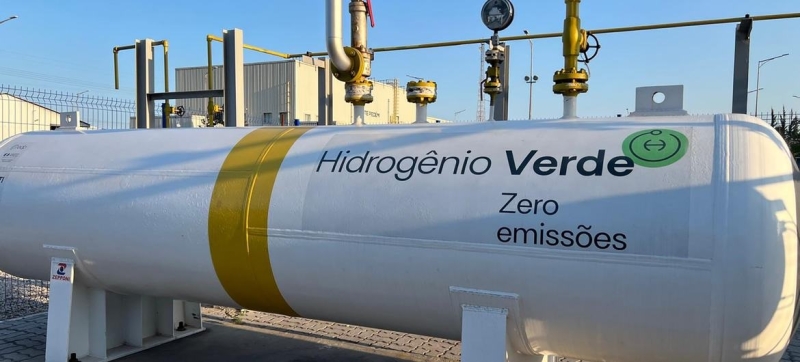- Dhaka Quake Leaves 10 Dead and Hundreds Injured |
- Fire at UN climate talks in Brazil leaves 13 with smoke inhalation |
- 5mmcfd gas to be added to national grid from Kailashtila gas field |
- ArmArmed Forces Day: Tarique's message draws on historic closeness |
- UNGA urges renewed int’l efforts for a resolution of Rohingya crisis |
Industry Growth and Climate Action: Can Both Advance?

The Pecém Industrial and Port Complex, in Brazil, stands out in the formation of a national clean hydrogen hub.
Do higher living standards in developing countries have to mean more polluting, fossil-fuel-dependent industries? Or is a low-carbon alternative possible? As the world grapples with climate change, economic inequality, and rapid technological shifts, next week’s Global Industry Summit will bring together governments, business leaders, and innovators to explore solutions that balance prosperity with sustainability.
In Namibia’s Daures region, a bold experiment aims to prove that economies can create jobs without relying on fossil fuels.
Once completed, the Daures Green Hydrogen Village will sustainably produce hydrogen and ammonia from renewable sources. These will be used to manufacture the country’s first carbon-free green fertiliser, reducing dependence on imports.
The project is designed to benefit the wider community, offering training in horticulture and crop production, as well as a solar-powered tomato paste processing plant that adds value to fresh produce and creates additional employment. More than 1,000 people are expected to gain from sustainable jobs and improved food security.
Projects like this are part of a broader movement to reimagine industry for a low-carbon future.
What UNIDO does, and why it matters
The Daures Green Hydrogen Village is one example of how the UN Industrial Development Organization (UNIDO) is supporting countries in the Global South to achieve inclusive and sustainable industrial development.
Countries as diverse as Costa Rica and Morocco are benefiting from UNIDO’s Global Programme for Hydrogen in Industry (GPHI), which helps overcome barriers and develop a just, green-hydrogen-based economy.
Since its establishment in 1966, UNIDO has championed inclusive and sustainable industrial development as a foundation for economic and social progress.
A platform for transformation
From 23 to 27 November, the UN agency will showcase its work at the Global Industry Summit in Riyadh, Saudi Arabia, where it will highlight how it supports developing countries and emerging economies in building and transforming their industries.
As the countdown to Riyadh continues, expectations are high for bold commitments and partnerships capable of driving a fair global economy — one grounded in sustainability, equality, and shared prosperity.
The conference will also address gender equality, women’s empowerment, UNIDO’s role in a reformed UN development system, and discussions on financing and digital platforms for monitoring results.

